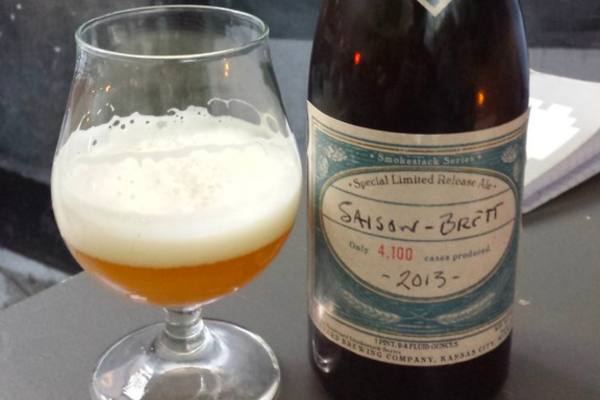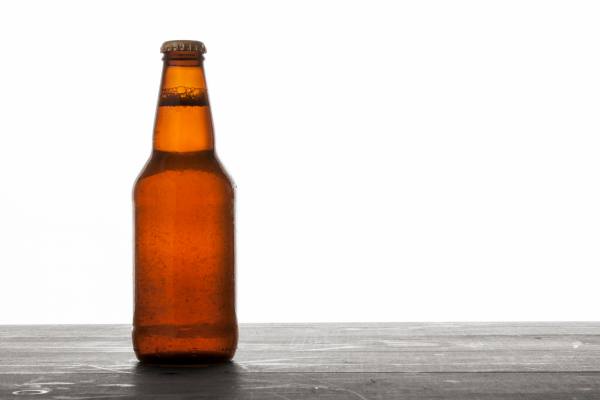Saison ales are among the most interesting and complex beer styles to both brew and enjoy. With a rich history and an array of flavors, these farmhouse ales have captured the hearts and taste buds of beer enthusiasts worldwide.
So how long should a Saison Ferment? You should let a saison ale ferment for at least 2-3 weeks but typically a 1-2 months, with additional bottle conditioning for carbonation and aging for a better flavor profile.
One of the most crucial aspects of brewing a great saison is the fermentation process. In this blog post, we’ll take a deep dive into the world of saison fermentation, exploring factors that influence the fermentation time, tips for achieving the perfect end product, and much more.
1. The Origins of Saison Ales
Before we delve into the fermentation process, it’s important to understand the origins of saison ales. These beers were traditionally brewed in the winter months in the French-speaking region of Belgium called Wallonia.

The beers were then stored and consumed during the summer months by farmworkers seeking a refreshing and nourishing beverage to quench their thirst after a long day in the fields.
The word “saison” itself translates to “season” in French, which is a nod to the seasonal nature of this beer style. Saisons were meant to be low in alcohol, flavorful, and highly carbonated, making them a perfect refreshment for hardworking laborers.
2. Saison Yeast Strains
A key component of saison ales is the unique yeast strains used in their production. Saison yeast strains are known for their high attenuation, which means they are able to efficiently convert sugars into alcohol and CO2 during the fermentation process. This results in a dry, crisp beer with a high level of carbonation.
Some popular saison yeast strains include:
- Wyeast 3724 Belgian Saison
- White Labs WLP566 Belgian Saison II
- White Labs WLP590 French Saison Ale
- Omega Yeast OYL-042 Saisonstein’s Monster
These yeast strains are known for their distinct flavor profiles, contributing peppery, fruity, and spicy notes to the finished beer.
3. Factors Influencing Fermentation Time
One of the critical aspects of producing a great saison beer is achieving the right fermentation time.
The fermentation time of a saison beer can be influenced by various factors, including the yeast strain used, fermentation temperature, initial gravity, and the type of sugars present in the wort.
In this section, we will explore in-depth the different factors that can impact the fermentation time of saison beer and how to optimize them to achieve the desired results.
There are several factors that can influence the fermentation time for saison ales:
3.1. Yeast Strain
As mentioned earlier, different saison yeast strains can impart different flavors and characteristics to the beer. Some strains may ferment more quickly than others, making it important to choose the right strain for your desired fermentation time and flavor profile.
3.2. Fermentation Temperature
Saison yeast strains are known for their ability to ferment at higher temperatures than most other ale yeasts. This can result in a faster fermentation process, as higher temperatures can often lead to more active yeast. However, fermenting at too high of a temperature may result in off-flavors, so it’s important to strike the right balance.
3.3. Original Gravity (OG)
The original gravity of a beer is a measurement of its sugar content before fermentation begins. Beers with a higher OG will typically take longer to ferment, as there is more sugar for the yeast to consume.
3.4. Nutrient Availability
Yeast requires certain nutrients, such as nitrogen and oxygen, in order to thrive and ferment efficiently. Ensuring that your wort is well-aerated and contains sufficient nutrients will help to promote a healthy fermentation.
4. Primary Fermentation
The primary fermentation stage is when the yeast consumes the majority of the sugars in the wort, converting them into alcohol and CO2. For saison ales, this stage typically takes around 7-10 days, although it can be slightly longer if the OG is on the higher side or if the fermentation temperature is lower.
During primary fermentation, it’s important to maintain a consistent temperature within the optimal range for your chosen yeast strain, typically between 65-80°F (18-27°C) for most saison strains. This will help to ensure a clean and efficient fermentation, producing the desired flavors and aromas.
5. Secondary Fermentation
After primary fermentation is complete, it’s often recommended to transfer the beer to a secondary fermenter for further conditioning. This allows the beer to clear and helps to develop the complex flavors and aromas associated with saison ales.
Secondary fermentation can last anywhere from 1-2 weeks, depending on factors such as the yeast strain and fermentation temperature.
During this stage, it’s important to maintain a consistent temperature and ensure that the fermenter is sealed to prevent oxidation.
6. Bottle Conditioning
Once fermentation is complete, saison ales can benefit from additional bottle conditioning. This involves transferring the beer into bottles with a small amount of sugar, which allows for further fermentation and carbonation in the bottle.

Bottle conditioning can help to enhance the flavors and aromas of the beer, as well as improve its overall mouthfeel and texture.
Bottle conditioning for saison ales typically lasts for at least 2-4 weeks, although some brewers may choose to age their beers for several months or even years to develop more complex flavors.
7. Tasting and Evaluating Your Saison Ale
After the fermentation and conditioning process is complete, it’s time to taste and evaluate your saison ale. Look for the following characteristics when evaluating your beer:
- Aroma: Fruity, spicy, and peppery notes are common in saison ales, along with some earthy and floral aromas from the hops.
- Appearance: Saisons should be a pale to medium gold color with a slightly hazy appearance and a thick, long-lasting head.
- Flavor: The flavor profile should be dry and crisp, with a moderate to high level of bitterness and a slight tartness. Fruit, spice, and pepper flavors should be present, along with some earthy hop character.
- Mouthfeel: Saison ales should have a medium to light body with a high level of carbonation, providing a refreshing and effervescent mouthfeel.
8. Troubleshooting Saison Fermentation Issues
If you encounter issues during the fermentation process, such as a stalled or slow fermentation, there are several steps you can take to troubleshoot:
- Check the fermentation temperature: Ensure that the temperature is within the optimal range for your chosen yeast strain.
- Aerate the wort: If your wort was not sufficiently aerated before pitching the yeast, this may result in a sluggish fermentation. Gently stirring or rocking the fermenter can help to introduce more oxygen and encourage the yeast to become more active.
- Add yeast nutrients: Adding yeast nutrients, such as yeast energizer or yeast nutrient, can help to provide the necessary nutrients for a healthy fermentation.
- Pitch more yeast: If fermentation has stalled, you may need to pitch additional yeast to help kickstart the process.
9. Experimenting with Saison Ale Recipes
One of the most exciting aspects of brewing saison ales is the opportunity to experiment with different recipes and ingredients.
Consider trying different malt, hop, and yeast combinations to create a unique and flavorful saison ale that reflects your personal tastes and preferences.
Conclusion
In conclusion, you should let a saison ale ferment for at least 2-3 weeks, with additional bottle conditioning for a better flavor profile. Here are 10 facts about saison ales and their fermentation process:
1. Saison ales originate from the French-speaking region of Belgium, Wallonia.
2. They were traditionally brewed in winter and consumed in summer by farmworkers.
3. Saison yeast strains are known for their high attenuation and distinct flavor profiles.
4. Factors influencing fermentation time include yeast strain, fermentation temperature, original gravity, and nutrient availability.
5. Primary fermentation typically takes around 7-10 days.
6. Secondary fermentation can last anywhere from 1-2 weeks.
7. Bottle conditioning can enhance the flavors and aromas of the beer, with a minimum of 2-4 weeks recommended.
8. Saison ales should have a dry, crisp flavor profile with fruity, spicy, and peppery notes.
9. Troubleshooting fermentation issues may involve checking temperature, aerating the wort, adding yeast nutrients, or pitching more yeast.
10. Experimenting with different recipes and ingredients can help you create a unique and flavorful saison ale to enjoy.
FAQs
What is the best fermentation temperature for saison?
The best fermentation temperature for saison is typically between 68-78°F (20-26°C), with some variations depending on the yeast strain used and desired flavor profile.
How long should I ferment my ale?
The length of fermentation for your ale will depend on the specific recipe and yeast strain being used. Generally, ales are fermented for 7-14 days, but some may require longer or shorter fermentation times. It is important to monitor the specific gravity of the beer to determine when fermentation is complete.
How long is fermentation for saison beer?
Fermentation for saison beer typically lasts for 1-2 weeks, but can vary depending on the specific yeast strain used and fermentation conditions.
Are Saisons easy to brew?
Saisons can be challenging to brew due to their unique characteristics, such as high carbonation, spicy and fruity esters, and dry finish. However, with proper recipe formulation, temperature control, and yeast management, Saisons can be successfully brewed by both novice and experienced brewers.
What is the best mash temp for saison?
The best mash temperature for a saison is typically around 148-150°F (64-66°C) to promote a dry and crisp finish, which is characteristic of the style.
How long should I let my IPA ferment for?
Typically, an IPA should ferment for 7-10 days, but this can vary depending on the specific recipe and fermentation conditions. It’s best to monitor the specific gravity of the beer using a hydrometer to determine when fermentation is complete.




